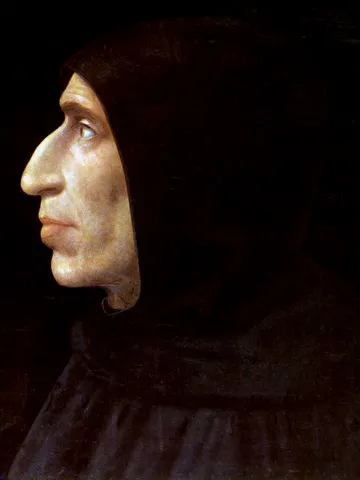
Birth Year: 1909
Full Name: Kwame Nkrumah
Nationality: Ghanaian
Profession: Educator and Politician
Presidency: 1st President of Ghana
Death Year: 1972
The Legacy of Kwame Nkrumah: A Revolutionary Leader
In 1909, amidst the vibrant landscapes of Nkroful in Ghana, a future revolutionary was born. Kwame Nkrumah’s early years were steeped in education; as a young boy, he displayed an insatiable curiosity that would later shape the political landscape of an entire nation. Perhaps it was his time spent at Achimota School where he soaked up knowledge like a sponge that ignited his fervent passion for independence and education.
After completing his studies in Ghana, Nkrumah took a leap into the unknown and traveled to America to further his education. Ironically, it was here, amid the bustling streets of Pennsylvania and New York City, that he encountered radical ideas that would fuel his political aspirations. He immersed himself in Pan-Africanism and socialism ideologies that resonated deeply with him as he grappled with the injustices faced by colonized nations.
Upon returning to Ghana in 1947, Nkrumah quickly emerged as a leading figure in the struggle against British colonial rule. He founded the Convention People's Party (CPP) and mobilized masses with his charismatic speeches his voice echoing through crowded squares like a clarion call for freedom! However, not all were enamored by this rising star; colonial authorities viewed him as a threat and arrested him multiple times for inciting unrest.
Nkrumah's efforts bore fruit when Ghana became the first African nation to gain independence from colonial rule on March 6, 1957. This victory sent shockwaves throughout Africa; suddenly, hope flickered like wildfire among oppressed nations yearning for liberation. Despite this monumental achievement and perhaps partly because of it Nkrumah faced criticism from various quarters regarding his increasingly authoritarian governance style.
As President of Ghana a title he held after becoming Prime Minister the challenges multiplied. His government introduced ambitious plans such as industrialization programs aimed at transforming Ghana into a modern state. Yet these plans often faltered under economic constraints; infrastructure projects struggled against financial limitations despite initial enthusiasm from Ghanaians who believed they were building something remarkable together.
Perhaps one cannot talk about Nkrumah without addressing the ideological rift within Africa itself during this period the question lingered: what does true independence mean? Who knows if history might have been different had there been more cooperation among emerging African leaders instead of rivalry? The Cold War context certainly added layers to this struggle with some leaders aligning themselves with Western powers while others looked towards socialist ideologies championed by figures like Nkrumah.
The Rise and Fall
Nkrumah's vision extended beyond Ghana’s borders; he envisioned a united Africa free from neocolonial influence! He convened several Pan-African conferences aimed at fostering unity among African nations a noble ambition but one met with mixed responses across the continent. Interestingly enough though...his travels often revealed both adulation and animosity from fellow leaders who either supported or opposed his views on unity.
The tensions escalated when economic hardships struck again due to rising oil prices globally and ironically so did dissent within Ghanaian society itself! Discontent brewed among citizens who had once celebrated their leader’s vision; accusations surfaced claiming corruption within government circles intensified public outrage leading some opposition parties gaining traction amidst dissatisfaction over living conditions!
A Dramatic Downfall
It came as no surprise then when in February 1966 Nkrumah’s government was ousted during military coup orchestrated largely due discontent amongst citizens yearning change alongside frustrations concerning lack meaningful reforms despite early promises made upon assuming office back in ’57...As chaos reigned supreme post-coup while fleeing into exile abroad! Who knows what could have happened had there been opportunities extended towards negotiation rather than violence?
Nkrumah eventually settled down in Guinea where he continued advocating Pan-African ideals until health began failing him dramatically over next few years until finally succumbing death on April 27th ,1972 .His passing marked end chapter life dedicated towards uplifting those marginalized voices echoing around continent but also left behind complicated legacy filled contradictions between aspirations revolutionaries & realities faced countless societies grappling with newfound identities emerged post-colonial era!
The Ongoing Impact
Todays’ generation continues feel ripples caused actions taken decades ago…Many activists invoke spirit Nkurmah alongside contemporary movements fight systemic oppression worldwide aiming realize visions equality equity anyone can strive irrespective their backgrounds or histories encounters found thus far....In recent years increasing recognition given contributions made toward continental solidarity inspiring youth forge bonds connections bridging gaps between diverse cultures often overlooked understanding shared struggles facing humanity today!
A Lasting Legacy
If we reflect back onto how history unfolds from birth (1909) till death (1972) Kwame Nkruamah stands out not just merely names mentioned texts studied schools classrooms alone but embodiment hopes dreams many individuals motivated push boundaries redefine possibilities! Even today echoes thoughts resonate profoundly leaving indelible mark shaping discourse activism critical socio-political transformations seen across globe urging communities step forward take charge futures they envision together moving onwards fearless…!






